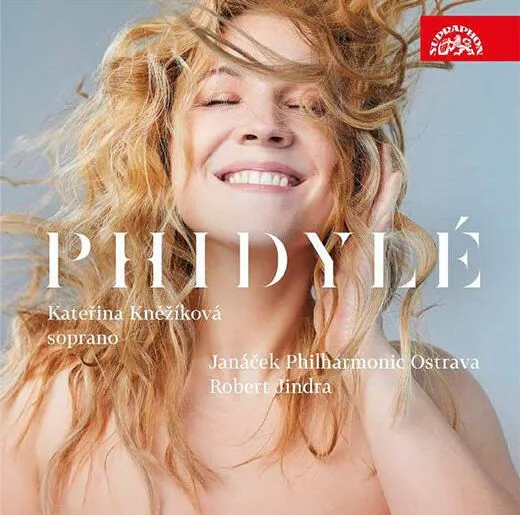
Phidylé Duparc: Phidylé; La Vie antérieure; L’Invitation au voyage; Chanson triste; Martinu˚: Magic Nights; Ravel: Shéhérazade; Cinq mélodies populaires grecques; Szymanowski: Penthesilea, Op. 18 Kateřina Kněžíková (soprano); Janáček Philharmonic/Robert Jindra Supraphon SU42962 65:16 mins
A number of impulses draw together the orchestra-accompanied songs on this delightful recording: fin de siècle and Impressionism are certainly among them, but all share a pervasive sensuousness. Martinů’s Magic Nights: Three Songs to Chinese Texts are a compendium of the influences he absorbed in the 1910s: Debussy is certainly there, also Richard Strauss, but alongside these heady impulses is a pervasive, predominantly tonal lyricism. Kateřina Kněžíková responds with ravishing tone, especially in the higher range.
The four settings by Duparc demand greater interpretative warmth and Kněžíková does not disappoint. ‘Chanson triste’ is particularly impressive not only for the expressive qualities of the vocal performance, but the superb mingling of voice and orchestral palette. Robert Jindra and the excellent Janáček Philharmonic of Ostrava accompany with great skill and personality, clearly delighting in the myriad textures required.
Their partnership with Kněžíková develops a more dramatic dimension in the broader canvas of Ravel’s Shéhérezade. The exotic travelogue of the first song, ‘Asie’, has a genuine sense of the thrill of potential discovery, and the elusive quality of ‘La flute enchantée’ is captured with great skill.
Szymanowski’s setting of Penthesilea’s goodnight to Achilles is tonally and emotionally the most ambiguous in this collection, and yet both singer and orchestra make compelling sense of it. Not every detail is in place: Kněžíková’s French pronunciation is excellent, if not always flawless, and occasionally the orchestral string sound could benefit from more weight. Nevertheless, there is much here to surprise and delight in this well-recorded issue.
Jan Smaczny